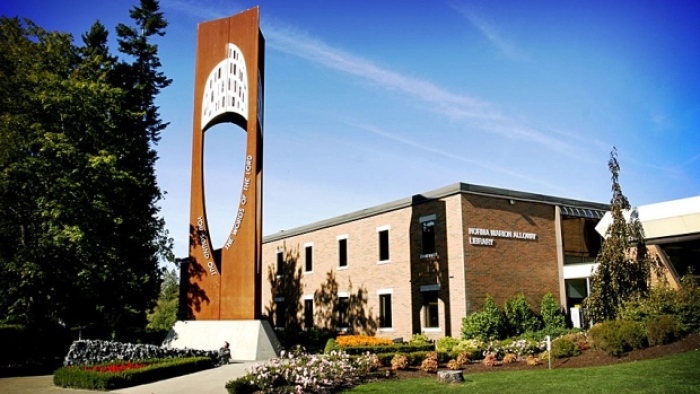Canadian Law Society Rejects Christian School Over Biblical Homosexuality Stance

The future of the first potential Christian faith-based law school in Canada is in doubt after the British Columbia Law Society rejected an earlier approval of the new law school at Trinity Western University because of the school's stance against homosexual activity.
In April, the British Columbia Law Society's Board of Governors, commonly known as the Benchers, voted, 20-6, against a motion that would have prevented Trinity Western University Law School graduates from being accredited to practice law in the province. On Friday, the Benchers voted, 25-1 with four abstentions, to rescind its previous approval after its members voted overwhelmingly in a membership referendum to disapprove the Trinity Western's accreditation earlier this summer.
"The referendum enabled all of BC's lawyers to have a say in whether the Benchers should recognize the Trinity Western University law school," British Columbia Law Society President Jan Lindsay said in a statement. "In their meeting, the Benchers considered the results of the referendum in the contest of the many other factors related to this issued and have now passed a resolution disapproving of the proposed law school … for the purpose of the law society's admission program."
The Trinity Western law school's accreditation has become a controversial issue among members of many law societies in Canada because of the "discriminatory" nature of the school's student covenant. Students upon enrollment must sign an agreement, which among other things, bans sexual activity that "violates the sacredness of a marriage between a man and a woman." If a homosexual student at the school was recognized as married by Canadian law, he or she would not be allowed to have sexual relations with his/her spouse while enrolled at the school.
Of the nearly 14,000 law society members who voted in the referendum, 74 percent voted in favor of a motion to request that the Benchers not approve the Trinity Western Law School's accreditation. The British Columbia Law Society joins the law societies of fellow Canadian provinces Ontario and Nova Scotia, who also have rejected Trinity Western's accreditation.
As The Blaze pointed out, Trinity Western Law School has been approved for accreditation by six bar associations: Alberta, Prince Edward Island, Saskatchewan, New Brunswick, Newfoundland, Nunavut and Labrador.
"Trinity Western is open and welcoming to all, and places a high importance on respect and care for everyone in our community," Trinity Western University spokesman Guy Saffold said in a statement. "In line with our mission and values, TWU's new law school will focus on developing leaders to serve those who are currently underserved and vulnerable — that means educating lawyers to work in rural communities and the not-for-profit sector."
Trinity Western University President Bob Kuhn told CBC British Columbia that the rejected accreditation could cause a setback for the opening of the new law school, which was set to open in 2016. Kuhn also said the school will know within the next few weeks whether it plans to file a judicial review. Trinity Western already filed court cases against the law societies of Ontario and Nova Scotia claiming that the law societies' charters grant the right of freedom of conscience and religion.
"They had to choose between the principles upon which they made the initial decision and the popularity of that decision among lawyers in the province," Kuhn said. "We're disappointed. of course, they chose the latter. But that's the reality of people in an elected position."
Saffold told The Province that it is sad occurrence when minorities religious rights can be left up to popular vote and not a court process.
"Putting difficult issues of human rights up to a popular vote, essentially, is not the way these things should be done," Saffold said. "In Canada we balance these issues in a very thoughtful way, through our courts, and don't vote on issues of minority rights."
Michael Mulligan, the lawyer who started the petition for the membership referendum, said that the Trinity Western's accreditation is not an issue of minority rights but rather an issue about discriminatory policies that have no place in the legal world.
"The policies of this university are inconsistent with core values of legal profession insofar that this university continues to dispel or expel students for their private sexual activities," Mulligan told CBC British Columbia.





























